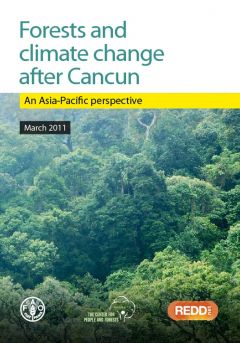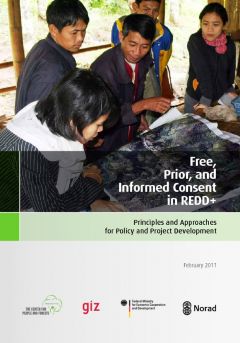Location
RECOFTC
RECOFTC is derived from an abbreviated form of the organization's legal name, Regional Community Forestry Training Center for Asia and the Pacific. Formerly the organization was known as RECOFTC – The Center for People and Forests.
RECOFTC – The Center for People and Forests is an international not-for-profit organization that focuses on capacity building for community forestry in the Asia Pacific region. It advocates for the increased involvement of local communities living in and around forests - some 450 million people in Asia-Pacific - in the equitable and ecologically sustainable management of forest landscapes.
The Regional Community Forestry Training Center for Asia and the Pacific (RECOFTC) opened in Bangkok, Thailand, in March 1987 with support from the United Nations Food and Agriculture Organization, the Government of Switzerland (through the Asian Development Bank), and Thailand's Kasetsart University.
Community forestry is widely acknowledged as a powerful solution for many of the challenges facing local people and the wider society, especially in improving rural livelihoods, enhancing community governance and empowerment, transforming forest-related conflict, protecting and enhancing the environment, and helping to fight climate change. As a capacity-building organisation, RECOFTC improves the ability of people and organisations to conduct community forestry effectively and sustainably.
RECOFTC works toward its mission through four thematic areas:
- expanding community forestry
- people, forests and climate change
- transforming forest conflict
- securing local livelihoods.
Members:
Resources
Displaying 366 - 370 of 485ASEAN Social Forestry Network Communications and Networking Strategy
In order to more effectively promote social forestry across the Southeast Asia region, the ASEAN Social Forestry Network (ASFN) is developing a communications and networking strategy to facilitate cooperation and support exchange between diverse stakeholders. This brief outlines the goals and approach of improving methods for sharing information internally and externally.
Forests and Climate Change After Cancun: An Asia-Pacific Perspective
The United Nations climate change talks in Cancun changed the shape of REDD+ negotiations and global forest policies. What effect will the decisions from the talks have on forests and forest users in Asia and the Pacific? Eleven climate change and forestry experts gathered to reflect on these issues, and this booklet summarizes their responses to 12 key questions.
Forests and Climate Change After Cancun: An Asia-Pacific Perspective
The United Nations climate change talks in Cancun changed the shape of REDD+ negotiations and global forest policies. What effect will the decisions from the talks have on forests and forest users in Asia and the Pacific? Eleven climate change and forestry experts gathered to reflect on these issues, and this booklet summarizes their responses to 12 key questions.
Free, Prior, and Informed Consent in REDD+: Principles and Approaches for Policy and Project Development
The principle that indigenous peoples and local communities have a right to give or withhold their Free, Prior, and Informed Consent (FPIC) to developments affecting their resources is not new. However, experience using FPIC in REDD+ implementation is still limited in the Asia-Pacific region. Using relevant examples from a range of locations and sectors, this guidebook provides a basis for developing country-specific guidance on employing FPIC in REDD+ processes.
Free, Prior, and Informed Consent in REDD+: Principles and Approaches for Policy and Project Development
The principle that indigenous peoples and local communities have a right to give or withhold their Free, Prior, and Informed Consent (FPIC) to developments affecting their resources is not new. However, experience using FPIC in REDD+ implementation is still limited in the Asia-Pacific region. Using relevant examples from a range of locations and sectors, this guidebook provides a basis for developing country-specific guidance on employing FPIC in REDD+ processes.




